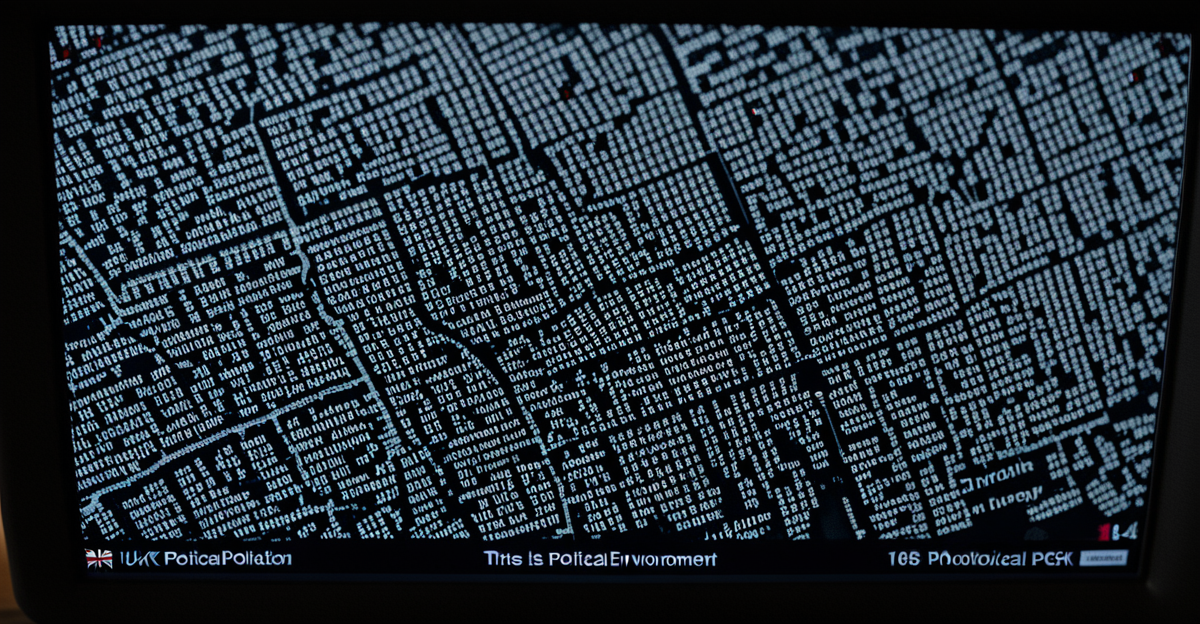Immediate Effects of the UK’s Political Climate on International Relations
Recent changes in the UK political climate have triggered significant diplomatic shifts. Key government reshuffles and modifications to foreign policy signal a strategic pivot, altering how international partners perceive the UK. For instance, swift adjustments in immigration and trade policies have prompted immediate responses from global counterparts.
The impact on international relations is evident in the recalibrated stances of crucial allies, with some reassessing bilateral agreements. The UK’s approach to global issues, such as climate commitments and defense cooperation, has undergone revision, influencing its diplomatic credibility. This is particularly noticeable in negotiations concerning trade and security, where uncertainty or assertiveness in UK policies affects negotiation dynamics.
Also to discover : How is the UK cultural sector recovering from recent disruptions?
Notable global reactions include cautious diplomatic tone changes and the reevaluation of ongoing deals. Some nations have expedited partnership talks, anticipating shifts in UK’s priorities, while others have adopted a wait-and-see approach.
In summary, the evolving UK political climate catalyzes immediate and tangible consequences in international relations, underscoring the interconnectedness of domestic politics and global diplomacy. This phase demands close observation, as these early diplomatic reverberations offer insight into future foreign policy directions.
Additional reading : How is the UK addressing the decline of local newspapers?
Shifting Alliances and the United Kingdom’s Global Standing
The evolving UK political climate is actively reshaping its alliances and global standing. Recent shifts in government leadership and foreign policy recalibrations have prompted longstanding partners to reassess their strategic commitments. This redefinition affects the UK’s reputation within multilateral forums like the UN and NATO, where consistency in foreign policy plays a crucial role.
One notable development is the careful recalibration of relationships with Commonwealth countries. These nations are seen as vital to the UK’s ambitions for renewed global influence. However, fluctuating policy signals have raised concerns about the UK’s predictability as a partner. Equally, traditional European allies watch these shifts cautiously, weighing the UK’s evolving foreign policy strategy.
The UK’s global reputation also hinges on how diplomatic shifts translate into pragmatic outcomes. For example, efforts to revive trade negotiations with non-EU countries appear under strain due to shifting priorities in economic diplomacy. Experts argue that sustaining trust requires clear communication and consistency in the UK’s approach amid domestic political changes. Overall, the impact on international relations reflects a period of adjustment where the UK seeks to balance legacy alliances with emerging global ambitions.
Evolving UK-EU Relations in the Post-Brexit Context
The UK political climate continues to exert a profound influence on UK-EU relations in the post-Brexit era. Recent political developments have introduced complexities in bilateral negotiations, often slowing progress on pending trade agreements. For example, shifts in UK government priorities have led to renewed scrutiny of border policies, particularly concerning Northern Ireland, which remains a sensitive diplomatic issue.
How does the UK’s political environment impact trade cooperation with the EU? The answer lies in the evolving regulatory landscape and the UK’s internal political debates that shape negotiation stances. Political uncertainties have occasionally caused EU officials to adopt cautious approaches to future cooperation, awaiting clearer UK policy signals. UK government reports themselves acknowledge these tensions but emphasize a commitment to maintaining constructive dialogue.
Moreover, the post-Brexit diplomatic shifts are visible in the recalibration of customs arrangements and regulatory alignment efforts. These adjustments affect not only trade flow but also broader diplomatic trust. Continued political volatility in the UK risks prolonging negotiation stalemates, which in turn influences the willingness of EU partners to engage proactively. Thus, the impact on international relations between the UK and EU remains a critical barometer of the current UK political climate’s global repercussions.
The Dynamics of US-UK Relations Amid Political Uncertainty
Recent shifts in the UK political climate have significantly affected US-UK relations, introducing new complexities in a historically robust alliance. Changes in UK political leadership and fluctuating domestic priorities have prompted American policymakers to reassess the nature and pace of diplomatic cooperation. This reevaluation affects critical areas including defense commitments, intelligence sharing, and bilateral trade talks.
How has the political uncertainty in the UK impacted joint initiatives with the US? The answer is multifaceted: while longstanding defense collaborations remain stable, political volatility has slowed progress on emerging trade agreements. US officials express cautious optimism but seek clearer policy consistency from the UK to sustain confidence. Intelligence cooperation, although resilient, faces challenges as shifting UK leadership recalibrates strategic priorities.
Moreover, altered political signals from the UK have led to recalibrated approaches within the Anglo-American alliance. Notably, Washington monitors the UK’s domestic dynamics closely, understanding their potential ripple effects on global security and economic partnerships. The ongoing political flux in the UK thus plays a pivotal role in shaping the trajectory of US-UK relations, demanding constant diplomatic engagement to maintain alignment amid uncertainty.
Immediate Effects of the UK’s Political Climate on International Relations
Recent fluctuations in the UK political climate have caused pronounced diplomatic shifts, directly influencing global perceptions. Changes in government, including cabinet reshuffles, have accelerated adjustments in recent UK policies, particularly in immigration controls and trade frameworks. Such swift policy revisions have triggered instantaneous responses from international actors evaluating new risks and opportunities.
How do these domestic political changes shape diplomatic behavior abroad? The answer lies in the uncertainty or assertiveness implicit in the UK’s posture. Partners increasingly question the UK’s long-term commitments, leading some to fast-track negotiations to secure advantageous terms before policies evolve further. For example, trade partners from Commonwealth countries and non-EU states are both recalibrating strategies to align with the evolving UK stance.
Immediate international reactions include a mix of caution and proactive engagement. Some nations adopt a wait-and-see approach, reflecting hesitation caused by volatile signals in UK foreign policy. Others expedite bilateral talks, anticipating shifts that may redefine economic and security priorities. These dynamics underscore how pivotal the impact on international relations is, driven by current UK political undercurrents and policy choices.
Immediate Effects of the UK’s Political Climate on International Relations
Recent fluctuations in the UK political climate have generated significant diplomatic shifts. Key government changes, including cabinet reshuffles and policy recalibrations, have directly influenced international perceptions, prompting rapid responses abroad. For instance, recent UK policies on immigration and trade have introduced uncertainty, compelling global partners to reassess their commitments and strategies.
How do these domestic political changes manifest in diplomatic behavior? The answer is that the UK’s evolving stance has both accelerated and delayed negotiations, depending on the partner country’s risk tolerance. Some international actors pursue expedited talks to secure favorable terms before further changes occur, while others adopt a cautious approach, waiting for stable signals.
Notable immediate repercussions include shifts in bilateral relations with Commonwealth nations and emerging non-EU trade partners, where diplomatic engagement is dynamically rebalanced. Several countries have adjusted their positions after observing the UK’s assertiveness or hesitation in articulating consistent foreign policy.
Taken together, these developments underscore the impact on international relations by the UK’s internal political dynamics, demonstrating how swiftly domestic political shifts ripple through the global diplomatic landscape.





